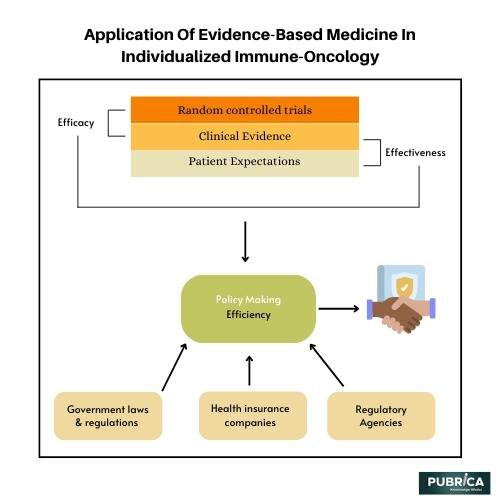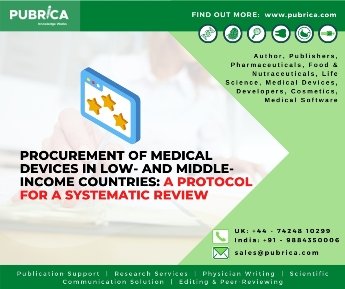
Understanding Incidence and Prevalence in Toxicology: Biostatistics and Epidemiology Principles
September 8, 2023
A Predictive and Qualitative AI Medical Data Collection in Pregnancy Health
October 4, 2023Healthcare attempts to promote public health by providing affordable, innovative care. Evidence-based medicine, which is frequently based on research, can help but does not replace individual clinical experience. However, managing evidence-based literature data in customized immuno-oncology is critical to provide the best possible solutions for each individual, particularly for orphan illnesses with methodological problems.
Introduction
Cancer is the second leading cause of death, causing 1 in 6 deaths. Immunotherapy in cancer has gained attention due to Nobel Prizes in 2011 and 2018 for dendritic cells, innate immunity activation, and checkpoint inhibitors as immunomodulatory cancer therapy. However, a cure for cancer remains undiscovered.
Translational clinical oncology is the fast translation of immunotherapy knowledge from different fields into therapeutic applications for cancer patients. This is accomplished by developing a multi-phase combined cancer treatment strategy that includes tailored multimodal immunotherapy with various immunotherapy technologies both during and after standard-of-care anticancer treatment:
- The standard of care anticancer treatments is being enhanced using immunogenic cell death (ICD) immunotherapy, combining oncolytic viruses and locally modulated electrohyperthermia to induce in situ ICD of tumour cells.
- After chemotherapy, specific immunotherapy is used to induce a strong T-cell immune response against tumour-associated antigens. This is achieved through an individualized IO-VAC® DC vaccine, which is unique to each patient due to its use of autologous DCs and tumour antigens.
- The focus is on maintaining anticancer tumour control and expanding the immune-covered antigenic spectrum through repetitive 5-day ICD immunotherapy cycles and universal long-peptide vaccines like WT1 and survivin.
- The second IO-VAC® vaccine was administered at least 6 months after the first to enhance the immune response and induce a memory response.

Evidence-Based Medicine
Evidence-based medicine (EBM) is an approach to medical practice that emphasizes the integration of clinical expertise with the best available evidence from systematic research. In the context of individualized immune oncology, EBM plays a crucial role in guiding treatment decisions for cancer patients by ensuring that therapies are based on scientific evidence rather than anecdotal or non-validated approaches. Here are some key applications of evidence-based medicine in individualized immune oncology:
- Treatment Selection:
- EBM helps oncologists choose the most appropriate immunotherapies for individual patients based on clinical trials and studies demonstrating their efficacy and safety.
- Patient Stratification:
- EBM helps identify patient subgroups that are more likely to benefit from specific immunotherapies. For instance, certain genetic or molecular markers can indicate whether a patient is likely to respond to immunotherapy.
- Monitoring and Surveillance:
- EBM provides guidance on the appropriate monitoring and surveillance of patients undergoing immune-oncology treatments. This includes recommendations for assessing treatment response, managing side effects, and adjusting therapy as needed.
- Combination Therapies:
- EBM aids in determining the efficacy and safety of combining different immune-oncology treatments or integrating them with other standard cancer therapies, such as chemotherapy or radiation therapy.
- Side Effect Management:
- EBM informs healthcare providers about the best practices for managing the side effects associated with immunotherapies. This includes guidance on identifying and treating immune-related adverse events (irAEs).
- Clinical Trials:
- EBM supports the design and conduct of clinical trials in radiation oncology. It helps researchers define endpoints, select appropriate patient populations, and measure treatment outcomes in a scientifically rigorous manner.
- Ethical Considerations:
- EBM also plays a role in addressing ethical considerations in individualized immune oncology, such as patient consent, the use of emerging treatments, and access to potentially life-saving therapies.
Managing Evidence-Based Data in Personalized and Individualized Medicine
Individualization of treatment is becoming more common in immune-oncology, driven by the fact that no two cancers are the same, no two patients are alike, no clinical course is identical, and tumour-host interactions are very personalized. We have entered a new age, with new discoveries leading to more personalized, effective treatment options with better success rates. This includes options for advanced cancers that increase HRQoL, are less toxic, are customized to unique patient and disease features, and may be less costly. Given the limits of RCTs, it is past time for medical organizations, regulators, and health insurance companies to broaden their perspectives and encourage new forms of clinical research and so-called customized medical oncology “to offer the right drug to the right patient at the right time.”
Conclusion
Evidence-based medicine (EBM) is crucial in individualized immune oncology for tailored cancer care. It combines clinical expertise with scientifically validated data, enabling oncologists to select effective immunotherapies, identify patient-specific treatments, manage side effects, optimize combination therapies, and guide ethical utilization of critical therapies.
Personalized medicine recognizes that no two tumours, patients, or clinical courses are the same, demanding tailored multimodal cancer therapy. This necessitates a thorough examination of evidence hierarchy principles as well as a “back-to-basics” perspective on literature review for evidence-based practice medicine that prioritizes patient autonomy. Active participation of all key stakeholders (researchers, physicians, industry, regulators, and patients) is required for success in order to impact change toward enhanced translation of customized medicine. Each additional day of high quality of life for cancer patients is priceless.
About Pubrica
At Pubrica, we have Professional Experience In Medical Writing and Provide End-To-End Regulatory Writing Service And Editing services for Students Pursuing Medicine. Furthermore, the team of medical professionals at Pubrica provides unique medical writing services in the areas of clinical research, pharmacology, public health, regulatory writing, clinical report forms (Crf), biostatistics, psychology, life science, dentistry, radiology, dermatology, diabetes, gynaecology, cardiology, biochemistry, forensics, surgery, neurology, psychiatry, genomics, medical device, pharmaceutical, nutraceutical, FMCG companies, hospitals,
References
- Van de Vliet, P.; Sprenger, T.; Kampers, L.F.C.; Makalowski, J.; Schirrmacher, V.; Stücker, W.; Van Gool, S.W. The Application of Evidence-Based Medicine in Individualized Medicine. Biomedicines 2023, 11, 1793.
- Schirrmacher, V.; Sprenger, T.; Stuecker, W.; Van Gool, S.W. Evidence-Based Medicine in Oncology: Commercial Versus Patient Benefit. Biomedicines 2020, 8, 237.
- Roussos Torres, E.T.; Epstein, A.L. Adopting an alternative structure for clinical trials in immunotherapy. Expert. Rev. Anticancer Ther. 2021, 21, 373–375

